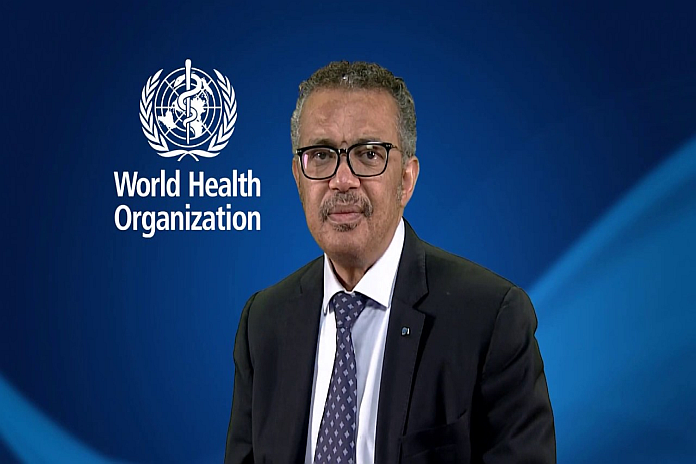– WHO Director-General at the Virtual Press Conference to update on the report of the 2nd meeting of the IHR Emergency Committee regarding the multi-country outbreak of monkeypox
By Tedros Adhanom Ghebreyesus
A month ago, I convened the emergency committee under the international health regulations to assess whether the multi-country monkeypox outbreak represented a public health emergency of international concern.
At that meeting, while differing views were expressed, the committee resolved by consensus that the outbreak did not represent a public health emergency of international concern.
At the time, 3040 cases of monkeypox had been reported to WHO, from 47 countries.
Since then, the outbreak has continued to grow, and there are now more than 16 thousand reported cases from 75 countries and territories, and five deaths.
In light of the evolving outbreak, I reconvened the committee on Thursday of this week to review the latest data and advise me accordingly.
I thank the committee for its careful consideration of the evidence, and issues.
On this occasion, the committee was unable to reach a consensus on whether the outbreak represents a public health emergency of international concern.
The reasons the committee members gave for and against are laid out in the report we are publishing today.
Under the international health regulations, I am required to consider five elements in deciding whether an outbreak constitutes a public health emergency of international concern:
First, the information provided by countries – which in this case shows that this virus has spread rapidly to many countries that have not seen it before;
Second, the three criteria for declaring a public health emergency of international concern under the international health regulations, which have been met;
Third, the advice of the emergency committee, which has not reached consensus;
Fourth, scientific principles, evidence and other relevant information – which are currently insufficient and leave us with many unknowns;
And fifth, the risk to human health, international spread, and the potential for interference with international traffic.
WHO’s assessment is that the risk of monkeypox is moderate globally and in all regions, except in the European region where we assess the risk as high.
There is also a clear risk of further international spread, although the risk of interference with international traffic remains low for the moment.
So in short, we have an outbreak that has spread around the world rapidly, through new modes of transmission, about which we understand too little, and which meets the criteria in the international health regulations.
For all of these reasons, I have decided that the global monkeypox outbreak represents a public health emergency of international concern.
Accordingly, I have made a set of recommendations for four groups of countries:
First, those that have not yet reported a case of monkeypox, or have not reported a case for more than 21 days;
Second, those with recently imported cases of monkeypox and that are experiencing human-to-human transmission.
This includes recommendations to implement a coordinated response to stop transmission and protect vulnerable groups;
To engage and protect affected communities;
To intensify surveillance and public health measures;
To strengthen clinical management and infection prevention and control in hospitals and clinics;
To accelerate research into the use of vaccines, therapeutics and other tools;
And recommendations on international travel.
The third group of countries is those with transmission of monkeypox between animals and humans;
And the fourth is countries with manufacturing capacity for diagnostics, vaccines and therapeutics.
My full recommendations are laid out in my statement.
I thank the emergency committee for its deliberations and advice. I know this has not been an easy or straightforward process, and that there are divergent views among the members.
The international health regulations remains a vital tool for responding to the international spread of disease.
But this process demonstrates once again that this vital tool needs to be sharpened to make it more effective.
So I’m pleased that alongside the process of negotiating a new international accord on pandemic preparedness and response, WHO’s Member States are also considering targeted amendments to the international health regulations, including ways to improve the process for declaring a public health emergency of international concern.
Although I am declaring a public health emergency of international concern, for the moment this is an outbreak that is concentrated among men who have sex with men, especially those with multiple sexual partners.
That means that this is an outbreak that can be stopped with the right strategies in the right groups.
It’s therefore essential that all countries work closely with communities of men who have sex with men, to design and deliver effective information and services, and to adopt measures that protect the health, human rights and dignity of affected communities.
Stigma and discrimination can be as dangerous as any virus.
In addition to our recommendations to countries, I am also calling on civil society organizations, including those with experience in working with people living with HIV, to work with us on fighting stigma and discrimination.
But with the tools we have right now, we can stop transmission and bring this outbreak under control.





